MercoPress. South Atlantic News Agency
Antarctica
-
Saturday, December 2nd 2017 - 08:56 UTC
World's biggest marine reserve in Antarctica's Ross Sea comes into effect
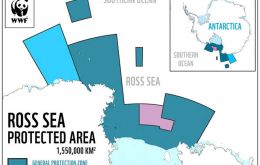
The world's biggest marine reserve in Antarctica officially comes into effect on Friday, in what has been hailed as a “watershed” moment in conservation. The marine protected area in the Ross Sea curbs damaging activities such as fishing, to protect wildlife including Adelie and emperor penguins in the high seas off Antarctica.
-
Thursday, November 23rd 2017 - 08:00 UTC
“Silver Cloud” cancels Antarctica cruise and Falklands call following engine failure
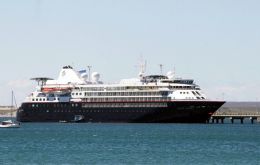
The failure of a fuel pump and engine left the “Silver Cloud” adrift as it headed toward Antarctica on November 20, 2017. Power was reportedly restored to the ship in about an hour, permitting the cruise vessel to return to Puerto Madryn in the South Atlantic for repairs.
-
Wednesday, November 22nd 2017 - 17:06 UTC
RAF arrives in Comodoro Rivadavia to join the submarine rescue effort
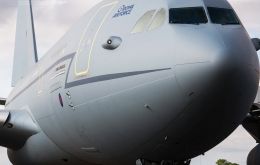
British and Spanish planes landed on Wednesday in Comodoro Rivadavia as part of the ongoing international effort to try to locate and rescue the Argentine submarine ARA San Juan which has now been missing for a week, and is in the “critical situation”, according to the official report from the Argentine navy.
-
Thursday, November 16th 2017 - 09:41 UTC
Luxury Silver Cloud sets off for Antarctica with a call in the Falklands
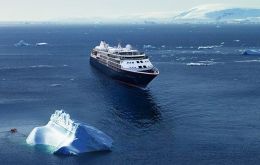
Luxury line Silversea's 254-passenger Silver Cloud has set sail on its first voyage after a massive makeover designed to turn it into the most elegant polar expedition vessel at sea.
-
Thursday, November 16th 2017 - 07:59 UTC
Argentina and Chile begin Antarctic combined naval patrolling
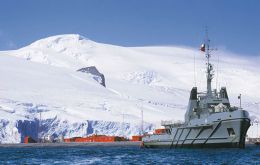
Argentina's ARA “Islas Malvinas” has started this season's Antarctic duty as part of the Antarctic combined naval patrolling, responsibility which Argentina shares with neighboring Chile since 1988.
-
Tuesday, November 14th 2017 - 10:30 UTC
Antarctica melting from below by some type of buried super-volcano, according to NASA research
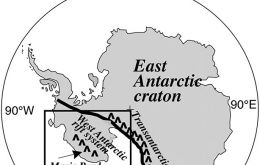
The Antarctic is being melted from below, according to a new study by Nasa - and a type of buried super-volcano may be to blame. The Nasa study adds evidence that there is powerful geothermal activity underneath the ice, creating lakes and rivers below the surface.
-
Friday, November 10th 2017 - 10:12 UTC
Plunge into South Georgia freezing waters to lobby for marine sanctuaries
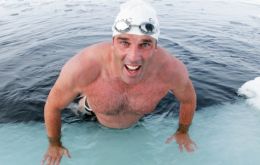
The United Kingdom government has been urged to create a marine sanctuary around islands in the South Atlantic which are “virtually untouched by humans”. Fully protecting 500,000 square kilometers around the South Sandwich Islands would preserve wildlife including penguins, seals, seabirds and whales, conservationists said.
-
Monday, October 16th 2017 - 11:30 UTC
Massive starvation of Adelie penguin chicks; allegedly extensive ice late in summer to blame
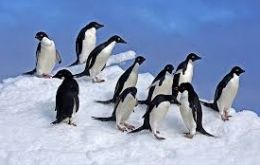
Thousands of Adelie penguin chicks died in Antarctica early this year, in an event now prompting conservationists to call for the urgent protection of east Antarctic waters. Scientists studying a colony of more than 18,000 pairs of Adelie penguins in the French Antarctic territory, Adelie Land, discovered only two chicks had survived at the start of 2017. The rest of the chicks had starved.
-
Tuesday, October 10th 2017 - 16:37 UTC
China's Sinopec considering selling assets in Santa Cruz, Argentina

Argentina’s losses on its oil and gas assets, as well as its labor disputes, have prompted China’s Sinopec to consider selling its operations in the country. Sinopec advisors have offered up some of its assets to about a dozen large firms from the U.S., Latin America, Europe, Africa, and Russia, it was reported on Monday and confirmed in Beijing media.
-
Tuesday, October 10th 2017 - 02:20 UTC
New map of South Georgia by British Antarctic Survey unveiled

A team of cartographers at British Antarctic Survey (BAS) has re-produced a high-resolution updated map of the sub-Antarctic island of South Georgia. The island, situated at 37°W 54°10’S is a haven for wildlife, a centre for wildlife and fisheries research and famous for the epic voyage by Sir Ernest Shackleton and his men just over a century ago.
